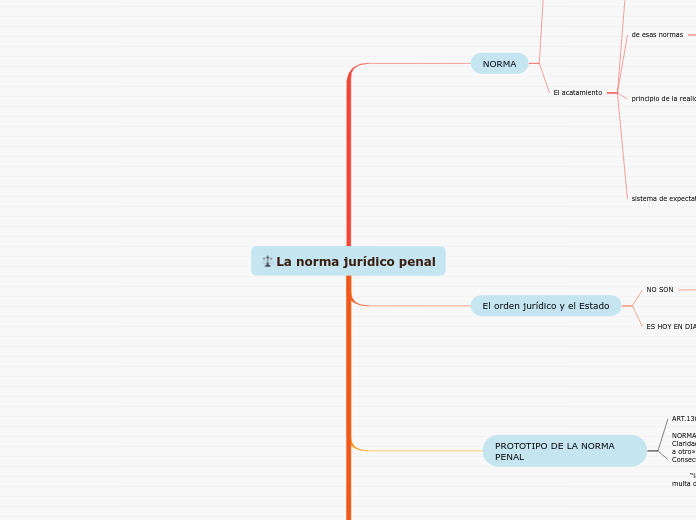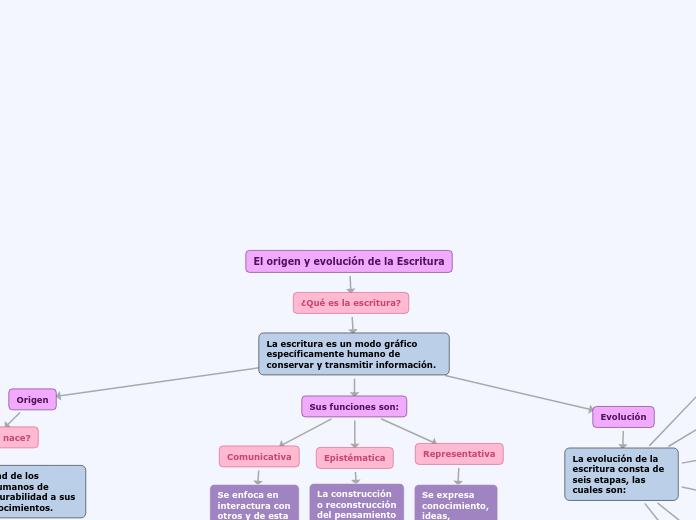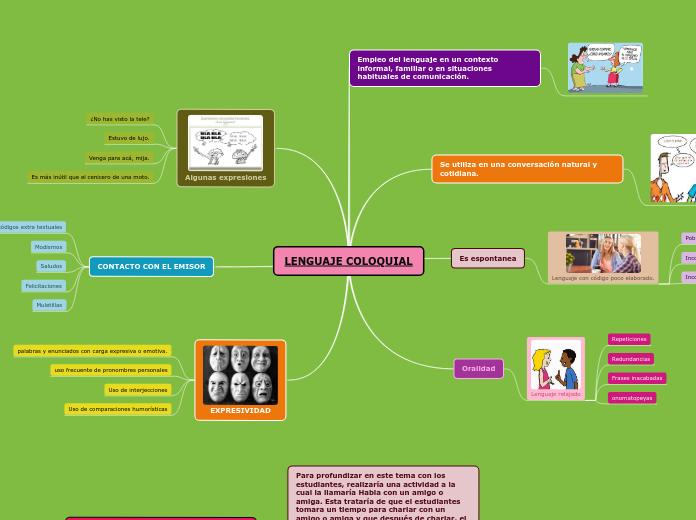SEMESTRE:2 GRUPO:1
ALUMNA: SANCHEZ TORRES WENDY MONSERRAT
La norma jurídico penal
To name your story, you have to think about the overall message and what you want your audience to understand from the story. Also, make it relevant and easy to remember.
ESTRUCTURA DE LA NORMA PENAL
The ending of a story is essential. We all know that if the ending is weak, what happened before loses its importance. So make it unpredictable, but fair. A resolved ending answers all the questions and ties up any loose threads from the plot.
CONSECUENCIA JURIDICA
La consecuencia jurídica es el resultado de la norma; el hecho que la norma contemple.
SUPUESTO DE HECHO
El supuesto jurídico es una hipótesis de cuya realización dependen las consecuencias jurídicos planteados por la norma
NORMA PENAL
This is the closure section of the story.
See examples of possible outcomes below:
- all problems have been solved
- it's clear how each one of your characters ends up
- your main character is transformed by the challenge
la norma penal el supuesto de hecho lo constituye un delito
Try answering these questions to come up with a closure:
- Have all the problems been solved?
- Is there a clear picture of what happens with each character in the story?
- Has the challenge transformed your main character?
- How do the characters feel in the end?
NORMA JURIDICA
This is the moment when the main character surpasses the last obstacle and finally faces their greatest challenge.
The climax usually follows one of these patterns:
- realization
- resolution
- choice
Type in your answer.
la consecuencia jurídica una pena y/ o una medida de seguridad.
CONFIGURACION LEGISLATIVA
LAS NORMAS PENALES EN BLANCO aquéllas cuyo supuesto de hecho se configura por remisión a una norma de carácter no penal.
LAS NORMAS INCOMPLETAS contienen el carácter de aquellos preceptos que sirven para aclarar el ámbito o extensión de la consecuencia jurídica
Ejemplo:
Artículos 203, 204 205, 206, 207, 207 Bis y 207.
No siempre se encuentra claramente la configuración legislativa en la norma penal
Para completar el supuesto de hecho o la consecuencia jurídica se debe acudir a distintos artículos del Código penal que no están en inmediata conexión
PROTOTIPO DE LA NORMA PENAL
NORMA PENAL COMPLETA :
Claridad en el supuesto de hecho: «privar de la vida a otro».
Consecuencia jurídica:
“la pena de prisión de diez a treinta años y multa de 100 a 300 días”.
ART.136 DEL CODIGO PENAL
El orden jurídico y el Estado
The middle of the story is where you add layers of complications that will lead to the end. Reveal more about the character's journey. Did their personality go through changes? How did they overcome the challenges? And as you build up the story’s central conflict, make it more personal to that character. Also, from the middle act, you have to lead into the final act.
ES HOY EN DIA
el orden jurídico, garantizado por el Estado, como un instrumento imprescindible para regular la convivencia en sus aspectos más importantes.
NO SON
Each story has a main character and that character usually needs to solve a problem or challenge. The character's challenge is the one that creates tension throughout the story.
por consiguiente, más que el reflejo o superestructura de un determinado orden social incapaz por sí mismo de regular la convivencia de un modo organizado y pacífico.
Type in any other challenges which other characters in the story need to face.
NORMA
In the beginning of the story (or the exposition), you will need to introduce the setting and characters. You might also want to introduce the main conflict. This part of the story is important because it gives the reader necessary background information and maybe even a first insight into a character’s personality.
El acatamiento
The setting (time & place) of a story can change throughout the plot.
sistema de expectativas sobre una norma
Sensory details include sight, sound, touch, smell, and taste. These details are important because they create depth in your setting.
See a few examples below:
- the smell of fresh bread
- the scent of freshly cut grass
- rain falling onto the windshield etc.
Nace así, secundariamente, la norma jurídica que, a través de la sanción jurídica, se propone, conforme a un determinado plan, dirigir, desarrollar o modificar el orden social.
Estas normas sociales forman el orden social. Históricamente este orden social se ha mostrado por sí solo como insuficiente para garantizar la convivencia
En cualquier tipo de sociedad, por primitiva que ésta sea, se dan una serie de reglas, las normas sociales, que sancionan de algún modo segregación, aislamiento
principio de la realidad
The weather is an important element in your story because it can highly influence the ambiance and the mood of the characters.
La regulación de la convivencia supone un proceso de comunicación o interacción entre los miembros de una comunidad
The most affected character is the main character. Write down here if he/she is affected by these weather conditions in any way. For example, if they lost a family member or their home during a hurricane, etc.
obliga al individuo a sacrificar o limitar esos instintos y a tener en cuenta a los demás
Decide if you want to include an element of nature in your story. For example, a rainbow can be a very nice choice for a happy ending. The mist in a story can represent mystery and secrets. A thunder can appear in the background at the moment when the 'bad guy' of the story makes its appearance, etc.
representado por las normas que los demás imponen
Does your story include catastrophic weather? See a few suggestions below or add your own:
- hurricane, earthquake, storm, etc
de esas normas
The time of the story can also change. It can describe the event of a single day or can include an entire year's plot. Anyway, don't forget to mention it.
FREUD, frente al principio del placer, que impulsa a la persona a satisfacer por encima de todo sus instintos
es una condición indispensable para la convivencia.
Las personas no pueden vivir aislada en sí misma
Your story can take place wherever your imagination will take you to.
For example: in an elevator, in an enchanted forest, etc. Don't forget to give details of the environment each time the setting changes, otherwise, the story can be confusing. Also, mention the seasons as each of them has unique weather and events.
a persona no puede vivir aislada en sí misma
para regular la convivencia entre las personas se establecen normas vinculantes que deben ser respetadas
Para alcanzar sus fines y satisfacer sus necesidades precisa de la comunicación con otras personas y de su auxilio.
norma
Characters are essential to a good story. Usually, the protagonist(s) is/are the most affected by the plot. Introduce a character by focusing on their actions, interests, and occupation, as the physical appearance doesn't make a difference in most cases.
definición
Type in the name of your character.
tiene por base
Add other qualities/attributes of the character.
la conducta humana que pretende regular y su misión es la de posibilitar la convivencia entre las distintas personas que componen la sociedad.
Norma es toda regulación de conductas humanas en relación con la convivencia
What is your character's main goal?
fight Evilfind lovedefeat his/her enemyrule the worldmake friendstime travelmake an awesome discoveryOther










